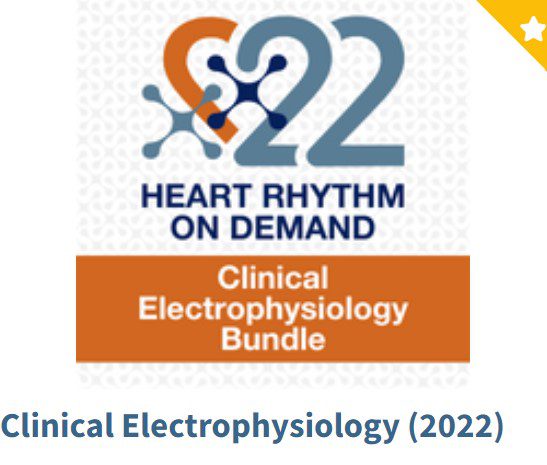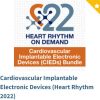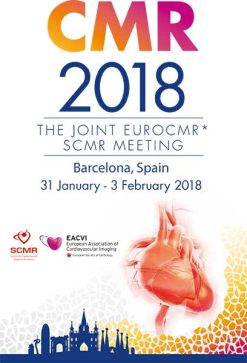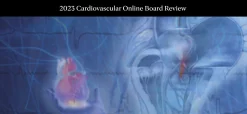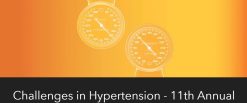Clinical Electrophysiology (Heart Rhythm On demand ) 2022
$10,00
Samples for Courses Can be found here : Free Samples Here!
Clinical Electrophysiology (Heart Rhythm On demand ) 2022
A curated bundle of Clinical Electrophysiology sessions presented at Heart Rhythm 2022. The education is presented in various learning formats, including Case-Based, Case-Based: Complicated Case, Tutorial, Core Curriculum, Abstracts, and more. Please note: this bundle does not include credit.
SKU: MEDU-STU01834
Category: CARDIOLOGY
Clinical Electrophysiology (Heart Rhythm On demand ) 2022
Description
A curated bundle of Clinical Electrophysiology sessions presented at Heart Rhythm 2022. The education is presented in various learning formats, including Case-Based, Case-Based: Complicated Case, Tutorial, Core Curriculum, Abstracts, and more. Please note: this bundle does not include credit.
Content Overview
The Clinical Electrophysiology category contains the following sessions from Heart Rhythm 2022:
- #HRS2022 YIA Competition – Clinical EP Finalists (EN-571)
- (Under-)Utilization of Anticoagulation for AF (CE-539)
- Addressing the Needs of a Diverse Arrhythmia Population (JS-460)
- Arrhythmias in the Community: Risk factors, Detection and Management (CE-544)
- Arrhythmias Related to Spirochetes, Parasites and Viruses (CE-300)
- Arriving at a Better Understanding of COVID-19 and Arrhythmias (CE-541)
- Best of Heart Rhythm Case Reports (CE-585) Best of Heart Rhythm O2 (CE-726)
- Board Review for EP Fellows: SVT and VT (CE-314)
- Can Genetics Help After a Young Sudden Cardiac Death? (JS-193)
- Cardio-oncology: New Cancer Therapeutics and Arrhythmias (CE-299)
- Challenges and Updates in Arrhythmic Mitral Valve Prolapse Syndrome (CE-326)
- Challenging Cases for the Electrophysiologist (PC-578)
- Complex SVT Discrimination by Pacing Maneuvers (CE-223)
- Conduction System Pacing? LBBB Area Pacing and Beyond (JS-404)
- Controversies in Arrhythmia Management in Athletes (CE-207)
- Controversies in Atrial Fibrillation and Lifestyle Management (CE-286)
- Cutting Edge Advances and Challenges in Managing Patients with Arrhythmogenic Cardiomyopathy (JS-453)
- Debate: Pill in the Pocket DOAC Guided By Long-Term Continuous Monitoring as a Strategy For Stroke Prevention in AF Patients: Myth or a Possibility (CE-487)
- Debate: What is the Role of LAA Occlusion for Stroke Prevention in Atrial Fibrillation? (CE-303)
- Does Sex Matter? (CE-507)
- Early AF Treatment: Prime Time or Hold the Horses (JS-445)
- Epicardial Mapping and Ablation in 2022 – State of the Art (JS-458)
- Genotype-First Arrhythmia Risk Prediction for Arrhythmogenic Cardiomyopathy (ACM) – What Have We Achieved and Where are We Going? (JS-174)
- Getting an Eye on the Target Before the Ablation of SVT (CE-542)
- Global Arrhythmia Education and Continuous Quality Improvement (CQI) – It Takes a Planet, not a Village (JS-452)
- Heart Rhythm Journal Presents: New Advances in Managing Cardiac Arrhythmias (CE-584)
- How to Conquer the Difficult Procedure (CE-315)
- How to Optimize Care for AF Patients in the Preablation Period (JS-451)
- Inside Out: The Left Ventricle (CE-310)
- Introduction of the New HRS Expert Consensus Statement on the Management of Arrhythmias During Pregnancy: A Case-Based Discussion of Recommendations (CE-342)
- Investigation of Decedents with Sudden Unexplained Death and Patients with Sudden Cardiac Arrest and of Their Families (JS-285)
- Late-Breaking Clinical Trials: Clinical Innovations (LB-734)
- Left Atrial Appendage Occlusion: Trials and Tribulations (CE-538)
- Localization Insights from the Electrocardiogram (JS-459)
- Looking Forward: What Ongoing Clinical Trials Could Teach Us (CA-509)
- Making Genomics Equitable for All Patients with Heritable Cardiovascular Disease (JS-146) Management of the Asymptomatic Patient with a High Burden of PVCs (CE-307)
- Managing Arrhythmic Risk: New Technologies and Techniques (CE-343)
- New trials in VT management (CE-540) New Uses for Old Drugs (CE-432)
- Novel Arrhythmia Insights and Mapping Techniques (CE-520)
- Novel Mapping Approaches for Atrial Fibrillation (CE-100)
- Opioids and Arrhythmia Risk (JS-426)
- Optimal and Personalized Management of Atrial Fibrillation (JS-434)
- Peri-TAVR Conduction Blocks: To Pace or Not to Pace (CE-302)
- Pre-Excitation . . . and: Understanding Associated Conditions (CE-486)
- Presenting the 2022 HRS Expert Consensus Statement on Evaluation and Management of Arrhythmic Risk in Neuromuscular Disorders: Development, Rationale, and Application (CE-410)
- Racial and Ethnic Disparities in Clinical Electrophysiology (CE-124)
- Radiation Safety For Eps (CE-485)
- Sex Differences in Cardiac Arrhythmias (CE-245)
- SVTs Mediated by Variant Accessory Pathways (CE-169)
- The Early the Better: Afib Detection and Stroke (CE-543)
- Translating Genetics to Optimize Arrhythmia Care (JS-338)
- Understanding and manipulating the autonomic nervous system (CE-521)
- Update on Dysautonomic Syndromes: Pacing, Neuroablation and COVID (CE-346)
- Ventricular Tachycardia Management in Arrhythmic Syndromes (CE-175)
- Ventricular Tachycardia: Prediction, Outcomes, and Treatment (CE-522)
Learning Objectives
After watching a reasonable amount of Clinical Electrophysiology (Heart Rhythm 2022), the learner should be able to:
- Identify and analyze the latest scientific advances and innovations in the field of heart rhythm disorders.
- Select appropriate, evidence-directed pharmacological and non-pharmacological therapies to achieve optimal outcomes for patients with heart rhythm disorders.
- Recognize alternative perspectives regarding areas of controversy for which scientific evidence is insufficient, controversial, inconclusive, or confusing.
- Utilize quality improvement measures, methods, and tools to foster systems-based improvements in heart rhythm care, outcome, and value.
- Analyze and improve processes related to inter-professional teams, care coordination, patient engagement, and communication to optimize the delivery of patient- and family-centered care.
- Assess the impact of regulatory and institutional policies, and societal and cultural norms, on safety, timeliness, equity (including diversity and inclusion), effectiveness, efficiency, patient-centered care, and value.
- Utilize improved communication methods to engage with patients and caregivers for increased shared decision-making in the treatment of heart rhythm disorders
- Evaluate the latest technology available for both professionals and consumers in the field of heart rhythm disorders.
- Recognize disparities in health care and describe strategies to reduce these disparities in patient care.
- Utilize shared decision-making resources in discussing monitoring and treatment of patients with heart rhythm disorders.
- Describe the latest cardiac device advisories and/or recalls and explain how to share this information with patients and caregivers.
- Explain the current and future trends in digital health that will impact the treatment of heart rhythm disorders.
- Describe best practices for managing a device clinic, an AF center, and/or a multidisciplinary electrophysiology practice
Related products
CARDIOLOGY
$35,00
CARDIOLOGY
$40,00
$30,00
$10,00
$15,00
$15,00
CARDIOLOGY
$110,00

